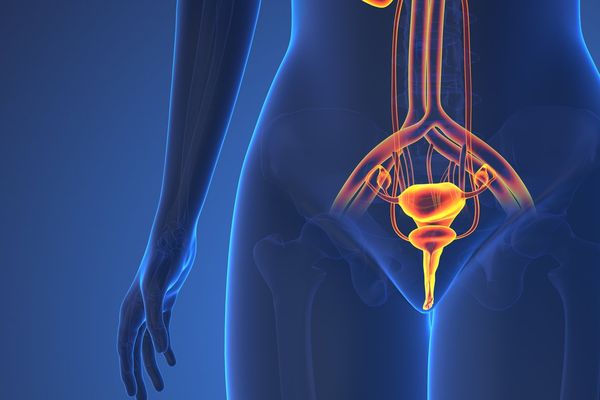By Toby Chai, MD, and Candace Parker-Autry, MD, of the SWHR Interdisciplinary Network on Urological Health in Women
Many women can take a road trip, jump on a trampoline with their kids, go shopping or go for a morning run without thinking twice about their bladder. For others, though, this simply isn't the case. Some women have a condition physicians refer to as "bladder on the brain"—meaning they constantly keep aware of the nearest bathroom due to strong, uncontrollable urges to void.
Such compulsions can interrupt daily plans and tasks and cause the sufferer to continually think about preventing urine leakage, protecting clothing from wetness and escaping the stigma of making frequent trips to the bathroom.
Are you a woman with "bladder on the brain"? How do you know if your bladder is healthy?
First, a little background: The bladder's job is to hold urine until it is a good time to urinate. When our bladder is working normally, we can fully participate in our lives: go to school, go shopping, take car or plane trips, be physically active or sit through a long movie without worrying about whether or not our bladder can do its job.
For women, normal bladder activity means the ability to hold 10 to 16 ounces of liquid (think a standard-sized plastic water bottle or a "grande" Starbucks beverage) and use the restroom every three to four hours (no more than twice overnight).
It's normal for this frequency to change depending on what we drink throughout the day, because healthy kidneys will create more urine with increased fluid intake. Certain beverages, like those with caffeine or artificial sweeteners, also can increase urine output.
In a healthy bladder, the sensation to use the bathroom is not painful and can be postponed until it is socially acceptable and convenient to urinate. Urination should not be painful for a healthy bladder, and urine leakage shouldn't occur.
How can you maintain a healthy bladder?
First, consider how much and what kind of fluids you are drinking. The old "eight glasses of water per day" rule is unfounded and may lead to overdrinking and "bladder on the brain." Instead, drink when you're thirsty, and choose water above all other beverages—especially those with caffeine or artificial sweeteners. Below are a few more helpful tips:
- Urinate when you feel you need to, approximately every three to four hours.
- Choose water—it's the healthiest beverage option and often the least expensive.
- Understand that increasing fluid intake may increase trips to the bathroom.
- Have regular bowel movements—at least once every other day.
- Maintain a healthy weight by eating wisely and getting regular exercise—obesity is linked to increased urinary urgency, frequency and leakage.
If you have bothersome bladder symptoms, talk to your health care provider. Often, women suffer from "bladder on the brain" for years before seeking treatment. If you have regular urine leakage or urinary frequency that keeps your mind on your bladder, discuss it with your health care provider.
The Society for Women's Health Research launched the Interdisciplinary Network on Urological Health in Women in 2015. The 15-member network aims to define interdisciplinary and multidisciplinary research priorities to examine conditions related to the urological system and its impact on women's health. Learn more about the network here. For additional resources on maintaining bladder health, visit www.swhr.org.
About the authors: Toby Chai, MD, is a professor of urology and of obstetrics, gynecology, and reproductive sciences at Yale University; vice chair of research, department of urology; and co-director, Female Pelvic Medicine and Reconstructive Surgery Program. Candace Parker-Autry, MD, is assistant professor of urogynecology and pelvic reconstructive surgery at the Maya Angelou Center for Health Equity, Wake Forest University. Both are members of SWHR Interdisciplinary Network on Urological Health in Women.
Follow Society for Women's Health Research on Twitter: www.twitter.com/SWHR
MORE:
Women's Health






